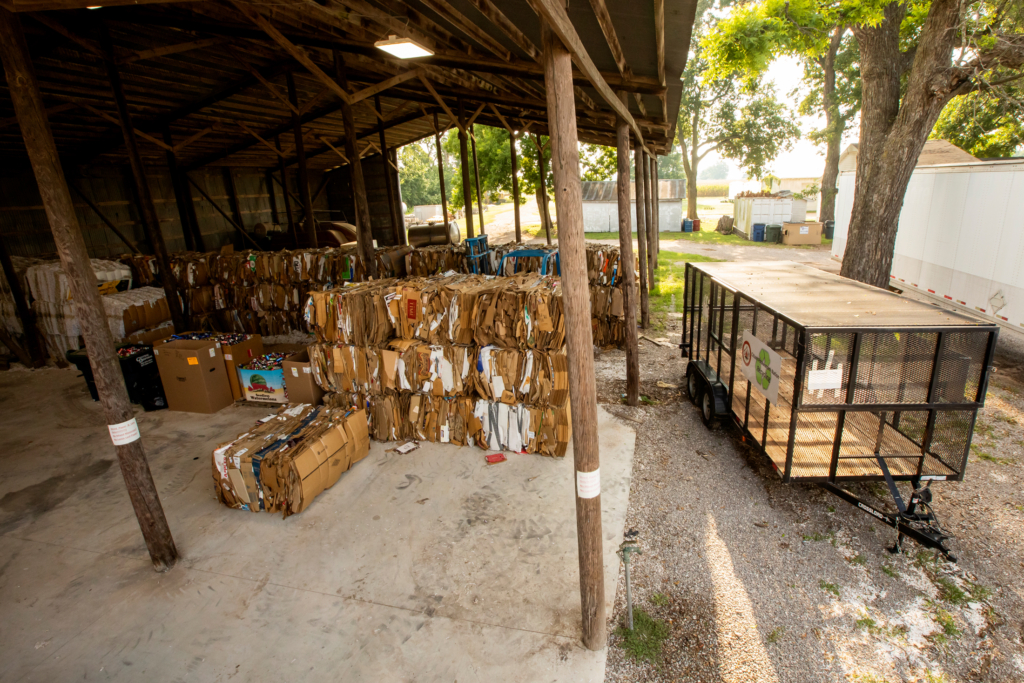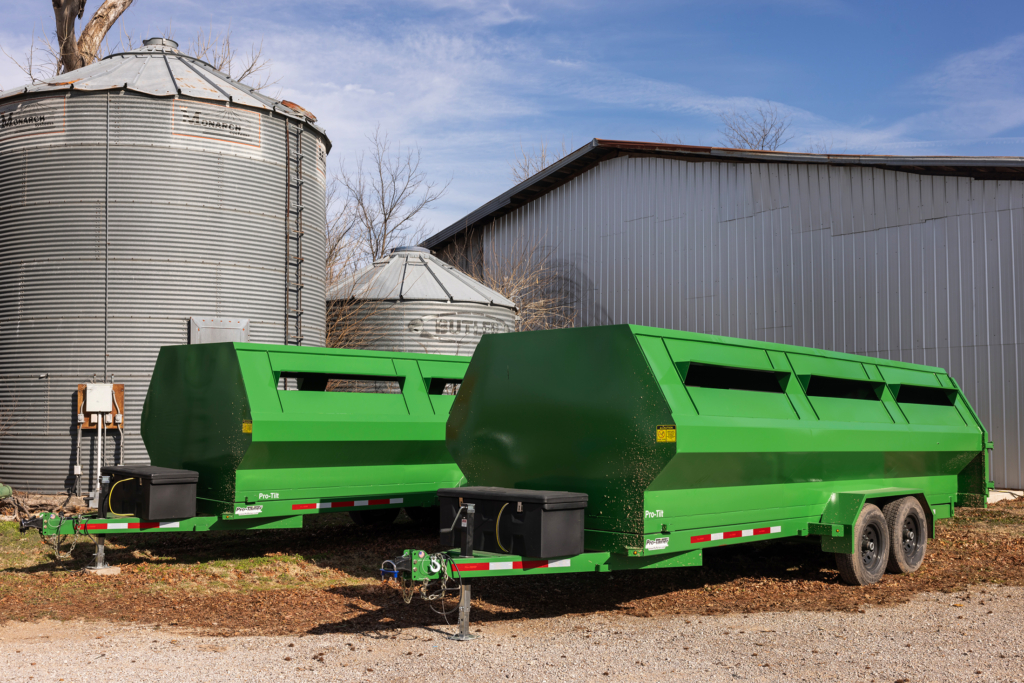Citizen Potawatomi Nation’s recycling program is funded by the U.S. Environmental Protection Agency (EPA) and was established in 2017 following a four month waste audit conducted by CPN Department of Environmental Protection.
Waste auditing, explained Micah Isaacs, CPN DEP assistant director, is a fancy term describing what amounts to climbing into dumpsters and sorting through the trash.
“That’s essentially jumping into every dumpster that the Tribe has out here, going through the trash, separating out the different materials in there, and seeing what kind of recyclables and how much the Tribe goes through,” Isaacs explained.
The waste audit process helped the team tailor the program precisely to the Nation’s needs so that it would have maximum benefit to both the environment and the Tribe.
Cardboard, because of its overall bulk and popularity as a recyclable material, proved the most effective and efficient material to start with. The program now processes paper shred and aluminum as well.
Reduces waste, saves money
Environmental Specialist Bryce O’Connor manages the recycling program’s operations, from collection to compacting and baling cardboard, paper and aluminum.
O’Connor makes daily rounds servicing 21 facilities throughout Tribal headquarters, collecting the recyclables.
A facility approximately a half-mile from the FireLake complex houses three compactors, one for each material.
A bale of cardboard can weigh between 500-1,200 pounds, and paper shred can weigh even more.

In its first year, the recycling program diverted 98,400 pounds of recyclable material from landfills. Now, the program diverts roughly 140,000 pounds per year, allowing perfectly usable materials to recirculate and reducing demand on natural resources.
The program also reduces costs to the Tribe.
“You can imagine, just in a small dumpster, … how fast one of those could fill up with cardboard,” Isaacs said. “That thing gets filled up with essentially empty space.”
Solid waste disposal costs the Nation per pickup — that is, every time a disposal truck comes and tips the dumpster. By diverting recyclable materials, especially ones that take up so much space, the recycling program reduces dumpster tips dramatically, saving the Tribe money.
Solid waste pickups at Tribal administration are down to approximately one tip per week, as compared to one per day prior to the implementation of the recycling program. At places like the FireLake Corner Store, the shift is even more dramatic:
“The corner store dumpster would have to be dumped three times a day, I would guess, if that recycling bin wasn’t out there,” Isaacs said.
Support
O’Connor and Isaacs are grateful for the support the program receives throughout the Tribe.
“It’s important to everyone from the top down,” said Isaacs.
Tribal administration has shown tremendous support to the program since its inception, and departments and enterprises were quick to get on board.
“I’ll get calls every day from different departments saying, ‘Hey, can you come get this?’ or ‘Where can I store all this cardboard, because we want to help recycle,’” O’Connor said. “It’s just good to see the community want to recycle and hop on board.”
The recycling program’s reputation so far precedes them that when Sovereign Pipe Technologies, the Nation’s newest enterprise, opened at Iron Horse Industrial Park, SPT staff came to O’Connor to set up a partnership without any prompting.
“Of course, they were on our list to go contact, but when we’re getting a call first, it means that people are aware of what’s going on,” Isaacs said.
Isaacs noted that federal partners, like the Environmental Protection Agency which funds the recycling program, are supportive, and that the program simply would not be possible without the leadership of CPN Department of Environmental Protection Director Shawn Howard.

Looking ahead
In November, the department acquired two new recycling trailers with hydraulic tilt to assist with the collection operations of the program, as well as a new turntable for wrapping the bales of cardboard, paper and aluminum that will further expedite the process.
Proud of the program’s successes to date, O’Connor and Isaacs have one eye turned towards future development for the betterment of the Tribe and the environment.
They hope to further develop hard drive and printer ink cartridge recycling soon, as well as secure document shredding capabilities.
Education and raising awareness are also key missions of the recycling program.
Ultimately, the team hopes to see the impact of the program extend far beyond the day-to-day operations within the FireLake complex.
“I think that’s the most important thing about recycling, period, is being educated on the do’s and the don’ts,” Isaacs said.
From setting up at the annual Family Reunion Festival to connect with Tribal members, to answering calls about how to get involved, O’Connor is especially driven by the educational aspect of his work. Outreach programing will continue to develop as the program expands, he said.
O’Connor encourages readers of the Hownikan to learn about and participate in recycling programs wherever they might be, and he is happy to answer questions that Tribal members might have. Reach O’Connor at bryce.oconnor@potawatomi.org or 405-878-4929 ex.4283.
